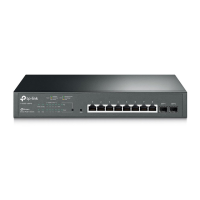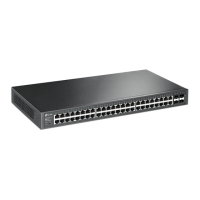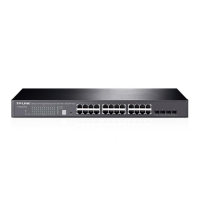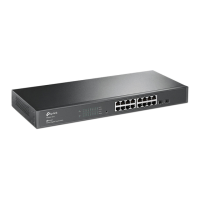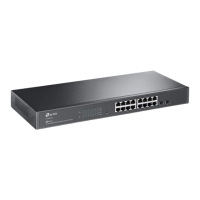Configuration Guide 398
Configuring DHCP Service DHCP
As the following figure shows, no IP addresses are assigned to VLAN 10 and VLAN 20.
The switch uses IP address of the default agent interface (192.168.0.1/24) to apply for
IP addresses for clients in both VLAN 10 and VLAN 20. As a result, the DHCP server will
assign IP addresses on 192.168.0.0/24 (the same subnet with the IP address of the default
agent interface) to clients in both VLAN 10 and VLAN 20.
Figure 1-1 Application Scenario of DHCP VLAN Relay
DHCP Server
DHCP Clients
VLAN 10
192.168.0.0/24
DHCP Clients
VLAN 20
192.168.2.0/24
DHCP Relay
Default Agent Interface:
192.168.0.1/24
Note:
For T1500 series switches, only the management VLAN interface can be specified as the default relay
agent interface.
DHCP L2 Relay
Unlike DHCP relay, DHCP L2 Relay is used in the situation that the DHCP server and client
are in the same VLAN. In DHCP L2 Relay, in addition to normally assigning IP addresses to
clients from the DHCP server, the switch can record the location information of the DHCP
client using Option 82. The switch can add Option 82 to the DHCP request packet and
then transmit the packet to the DHCP server. The DHCP server which supports Option 82
can set the distribution policy of IP addresses and the other parameters, providing a more
flexible address distribution way.
Figure 1-2 Application Scenario of DHCP L2 Relay
DHCP Server
DHCP Clients
VLAN 1
DHCP Clients
Switch
DHCP L2 Relay

